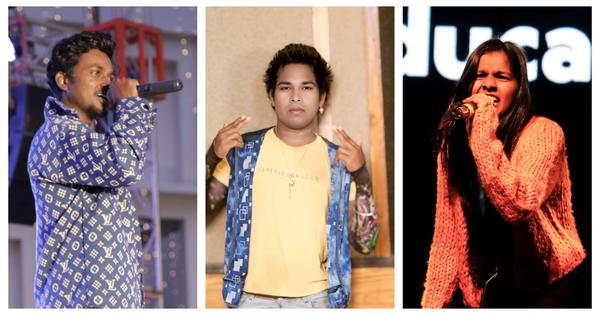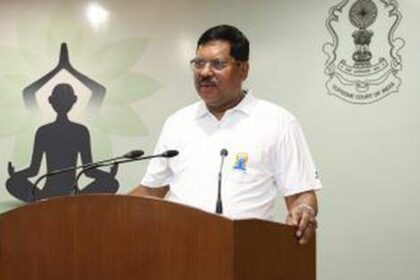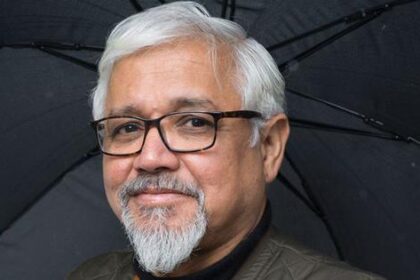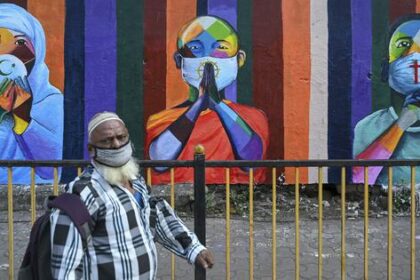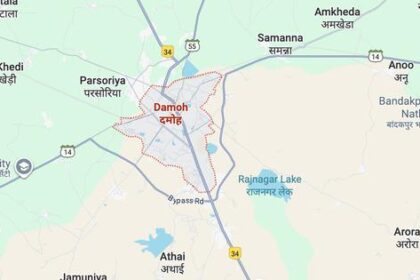Exploring how Mahi G, Dule Rocker, and Aman Kachhap use music for social justice and cultural identity.
Mahi G, Dule Rocker, and Aman Kachhap are three Indian rappers who are striving to amplify the voices of marginalized communities through their music. Each artist comes from a different part of India and shares a commitment to addressing social issues that often go unnoticed in mainstream pop culture. They utilize rap as a medium to narrate stories of caste injustice, environmental crises, and personal struggles faced by their communities.
Mahi G, a 28-year-old from Ahilyanagar in rural Maharashtra, draws inspiration from her experiences as a member of the Mahadev Koli Adivasi community. Her journey into rap began with poetry, which she transformed during the farmers’ protests of 2019-2020. For her, the focus remains on current issues, as she articulates in her debut track, Jungle Cha Raja (King of the Jungle), released in 2021. This song emphasizes the significance of jal, jangal, jameen (water, forest, and land) in sustaining community life. The accompanying video showcases her performing in traditional attire, connecting her personal history with broader community struggles.
Since her debut, Mahi has released eight songs, with a substantial number addressing themes of environmental and social justice. One notable track, Haq Se Hijda Hu, highlights the resilience of the hijra community in India. Her recent single, Heatwave, produced with Greenpeace India, sheds light on how rising temperatures adversely affect outdoor workers, such as brick-kiln labourers and sewage cleaners. Mahi finances her music through her profession as a software engineer and has opted not to monetize her YouTube channel, stating that her community perceives struggle as an intrinsic part of life.
Dule Rocker, whose real name is Duleshwar Tandi, hails from Kalahandi, Odisha. This 27-year-old Dalit rapper’s entry into music was catalyzed by the hardships faced by migrant workers during the Covid-19 lockdown. After returning home just before the lockdown, he witnessed the harrowing plight of workers walking long distances in search of sustenance. Using only a basic mobile phone, Dule began to rap, creating raw and unfiltered verses that captured the political neglect and poverty surrounding him. His song Sarkar Javab De (The Government Needs to Answer) gained traction online, resonating with audiences across India.
Despite his success, Dule recognized the challenges of sustaining a career in revolutionary rap and shifted towards themes of love and celebration, which gained him popularity in Odisha. He now owns a small studio and enjoys a degree of local celebrity, often invited to events and gatherings. However, he dreams of returning to creating politically charged music in the future, believing in the potential to blend engaging beats with meaningful truths.
Aman Kachhap, a 27-year-old from Jharkhand, uses rap as a means to reclaim dignity for himself and his community. Born into the Oraon tribe, he faced bullying during childhood, being labeled a “Naxalite.” His perception of the term changed when he began exploring tribal history during his college years. This transformation inspired his breakout track, Naxali, where he embraced the label as a source of pride. His music incorporates traditional Nagpuri rhythms, showcasing the cultural richness of his heritage.
Aman aims to further his education with a PhD and aspires to revive Paika martial folk dance through his performances. He acknowledges the practical challenges of activism, emphasizing the need for financial stability to support social initiatives. Ultimately, he envisions his music as a continuation of the legacy of Birsa Munda, advocating for pride in one’s identity and roots.
The collective work of Mahi G, Dule Rocker, and Aman Kachhap underscores the belief that rap can serve as both a form of resistance and a historical record, preserving the experiences of communities often overlooked by conventional narratives.

